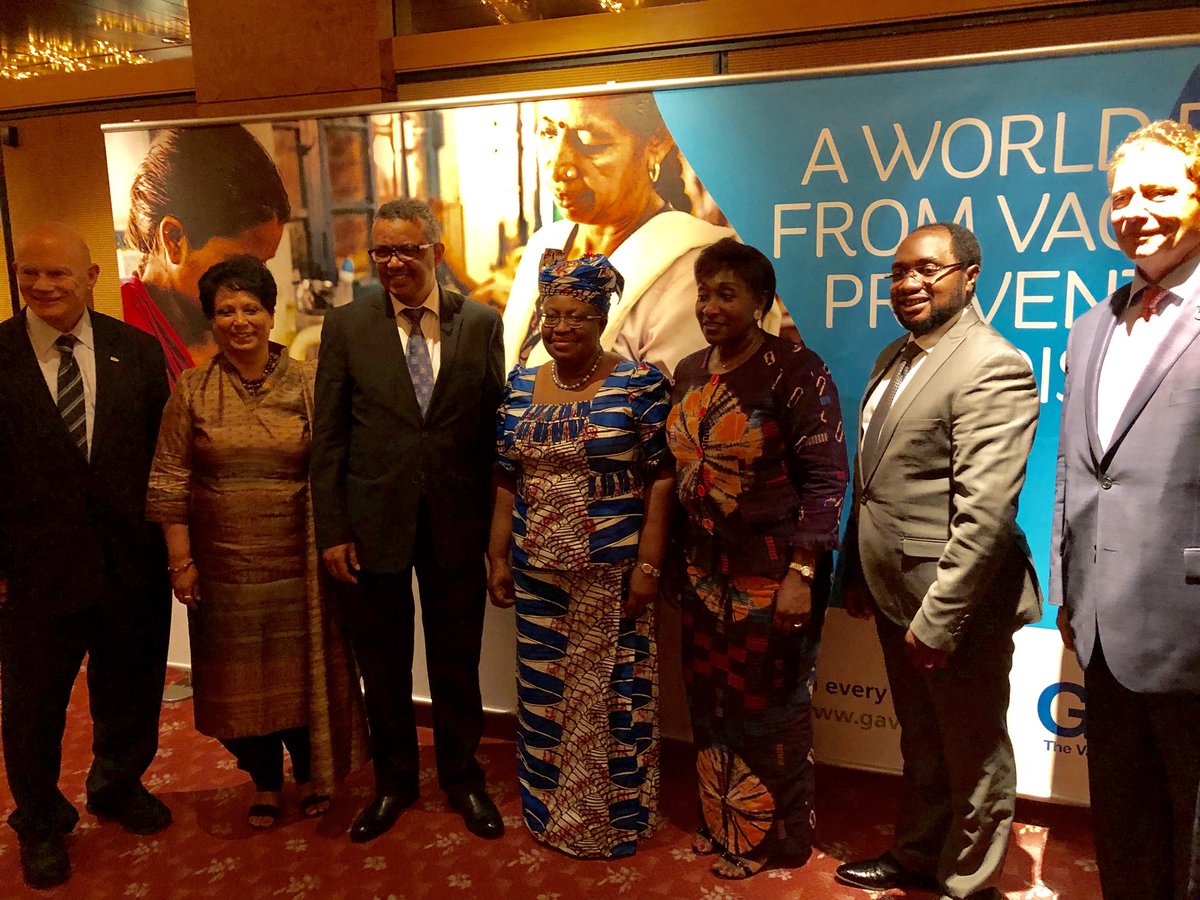In February 2018, healthnews.africa exclusively reported Gavi will be extending its support for Nigeria
The Vaccine Alliance Gavi this week announced it is extending its support for Nigeria to 2028 instead of the plan to transition in 2021.
Plans to extend Gavi’s support for Nigeria was first reported by healthnews.africa in February 2018 following an exclusive interview.
In a statement, Gavi said its board approved an exceptional extension of support for Nigeria up to 2028, which could lead to more than one million lives saved from vaccine-preventable disease in the country.
“With 4.3 million under-immunised children, Nigeria has the highest number of children in the world who are not fully protected against deadly vaccine-preventable diseases. This has also contributed to major recent outbreaks of diseases such as yellow fever, meningitis and cholera,” said Dr Seth Berkley, Gavi’s CEO. “This crucial support will ensure that children across the country receive the vaccines they desperately need, help to strengthen the country’s primary healthcare system, build a healthier society and ultimately a stronger economy for Africa’s most populous country.”
Gavi noted that while Nigeria was due to transition out of Gavi support in 2021, the country has one of the lowest immunisation rates in the world with approximately two out of three children currently not receiving a full course of basic vaccines. Recognising that this is a risk to the sustainability of Nigeria’s immunisation programme, the health security of the region and – most importantly – the health of Nigeria’s children, the Gavi Board approved an exceptional extension to support. This was based on a robust transition plan which has been jointly developed by the Alliance and the Government of Nigeria.
“The Gavi Board emphasised that its support is contingent on the Government of Nigeria fully meeting its commitments and on close monitoring of progress which will be evaluated by a detailed accountability framework. The Government of Nigeria committed to invest close to US$ 2 billion to finance its vaccines over the next 10 years. Gavi’s financial support of around US$ 1 billion will include US$ 773 million for vaccine financing and up to US$ 260 million for health system strengthening from 2018-2028,” it stated.

Funding for inactivated poliovirus vaccine
The Gavi Board also approved Gavi core funding for inactivated poliovirus vaccine (IPV) for 2019 and 2020 to contribute to achieving and safeguarding the eradication of polio.
“Polio will remain a threat until every child is protected against this crippling disease,” said Dr Ngozi Okonjo-Iweala, Gavi Board Chair. “That is why the vaccination of every child is the corner stone of the polio eradication effort. Introducing IPV to all countries to interrupt polio transmission and maintain zero cases represents an unprecedented push, and Gavi is proud to be part of it.”
In 2013, the Gavi Board approved support for the introduction of IPV in all 70 Gavi-supported countries, waiving a number of policies to enable the accelerated introductions. In June 2017 this support, including the existing policy waivers, was extended until 2020, subject to additional funding being made available by the Global Polio Eradication Initiative (GPEI). GPEI was fully funded through to 2018. However, with continued wild poliovirus circulation in 2018, the timeline for eradication has been extended until 2021 at the earliest and this has stretched the GPEI’s available resources. As a result the Polio Oversight Board (POB) of the GPEI requested funding from Gavi’s core resources to support the final push towards eradication.
“There has been extraordinary progress in the global effort to eradicate polio,” said Dr Seth Berkley, Gavi’s CEO. “With 10 cases of wild poliovirus in two countries, the good news is that we are down to a few cases. However, polio is still endemic in three countries – Afghanistan, Pakistan and Nigeria. There has also been continued transmission of vaccine-derived polio in other countries. Without this exceptional additional support from Gavi, the IPV programme was at risk of not being fully funded, further pushing back the day when we are finally able to announce the end of this terrible disease.”
As well as the significant health benefits, polio eradication is expected to yield significant economic benefits, as a polio-free world will reap savings upwards of US$ 50 billion until 2035. Most importantly, success will mean that no child will ever again suffer the terrible effects of lifelong polio-paralysis.
Gavi anticipates that its support for IPV for 2019 and 2020 should amount to approximately US$ 200 million. At the next Gavi Board meeting in November 2018, the Board will consider possible support to IPV after 2020 as part of its latest Vaccine Investment Strategy.
In addition, today the Gavi Board also approved a short-list of vaccines that will be considered for investment at the next Board meeting. These include multivalent conjugate meningococcal vaccine, hepatitis B birth dose, cholera, diphtheria, tetanus and pertussis-containing (DTP) boosters, respiratory syncytial virus (RSV) and rabies. A review of efforts in pandemic influenza preparedness for developing countries will also be brought to the Board in November.
Additional approval was also given by the Board today to extend Gavi’s support for the global cholera stockpile until the end of 2019. This is to ensure short-term continuity until a decision on longer-term support for preventative use of oral cholera vaccine is made later this year, as part of the Vaccine Investment Strategy. The additional funding is expected to total approximately US$ 52 million. The Gavi Board also approved that Gavi-supported countries introducing routine pneumococcal vaccine (PCV) are eligible to receive support for catch-up campaigns of children between one and five 5 years of age. The additional funding associated is expected to amount to up to US$ 19 million for the 2018-2020 period.